Hosepipe bans and crop failures: how drought may hit England
National Drought Group considering tough restrictions to deal with hot, dry weather
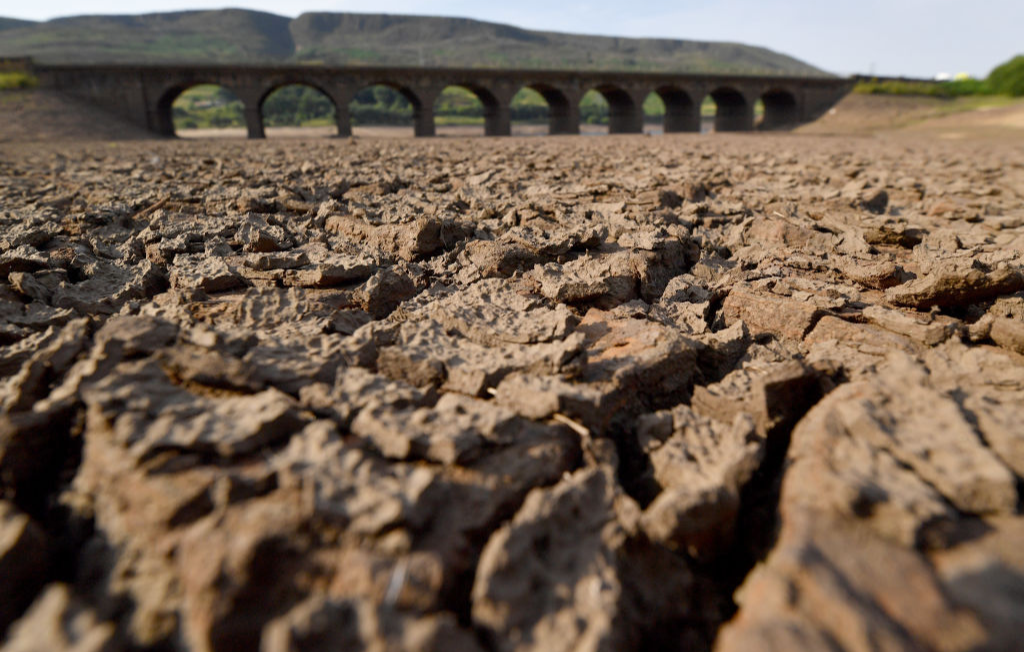
A free daily email with the biggest news stories of the day – and the best features from TheWeek.com
You are now subscribed
Your newsletter sign-up was successful
England is heading for a drought next month if the hot and dry weather continues, officials have warned.
Most of the country is experiencing a “prolonged dry weather” period – defined by ITV News as “the step before drought is declared”. The conditions are “raising the spectre” of restrictions on household water usage, such as hosepipe bans.
The National Drought Group (NDG) is meeting today to discuss potential measures after last week’s heatwave “baked the soil” in England, said The Guardian’s environment reporter Helena Horton. The restrictions could include banning farmers from “watering their crops in the crucial period of August and September”, Horton reported.
The Week
Escape your echo chamber. Get the facts behind the news, plus analysis from multiple perspectives.

Sign up for The Week's Free Newsletters
From our morning news briefing to a weekly Good News Newsletter, get the best of The Week delivered directly to your inbox.
From our morning news briefing to a weekly Good News Newsletter, get the best of The Week delivered directly to your inbox.
Water quality and quantity
The NDG is made up of government officials and representatives from water companies and bodies including the National Farmers’ Union. The group last met in March and its next meeting “had been supposed to take place in October to plan for 2023”, said The Guardian’s Horton.
But the meeting has been brought forward as low river flows impact “the quality and quantity of water” in England, said ITV News. Reservoirs and groundwater levels are also low “following months of below-average rainfall”.
A water scarcity risk alert has been issued in Scotland too, but as the neighbouring country is not represented by the National Drought Group, any restrictions will be decided on a local level.
Hosepipe bans and crop restrictions
If a drought plan is implemented in England by the government, households are likely to be asked to “cut down on non-essential water consumption”, said The Telegraph’s environment editor Emma Gatten. A hosepipe ban may be introduced, although the decision will be “left to individual water companies”.
A free daily email with the biggest news stories of the day – and the best features from TheWeek.com
Thames Water has already said that restrictions are likely unless rainfall increases in the coming months.
Farmers may also face restrictions on crop irrigation. This could have a significant impact on crop production, “with root vegetables such as potatoes under particular threat”, said The Guardian’s Horton. A lack of water risks widespread crop failures, and dry soil may also hinder harvesting.
A drought was last declared in England in 2018, and before that, in 2011. But “the extremely dry conditions and hot weather mean the government is preparing for a worse outcome this year”, Horton reported.
According to an analysis by The Times of Met Office data, the first six months of this year were the driest since 1976.
Wildfire warnings
The public has been warned “not to be complacent about the threat of wildfires”, The Times reported, after blazes hit parts of England as temperatures soared over 40C last week.
East Anglia experienced “ferocious fires” that “tore through homes, wildlife havens and acres of arable land”, said the Eastern Daily Press. And with water still in short supply, farmers have been warned that the fire risk remains. “Climate change remains a fundamental and urgent challenge for the industry,” the newspaper added.
Grass growth ‘hampered’
In a further blow to farmers, lack of rainfall has “hampered grass growth, which could hit feed supplies for the winter”, said the National Farmers’ Union’s deputy president, Tom Bradshaw. This could add “additional costs to livestock farming businesses at a time when costs are continuing to increase significantly”, he warned.
And the long-term outlook is equally worrying.
The Met Office is predicting that the UK will face “warmer and wetter winters and hotter, drier summers in the coming years”, amid rising global temperatures. Extreme weather events such as heavy floods and heatwaves are also expected to occur more frequently.
Julia O'Driscoll is the engagement editor. She covers UK and world news, as well as writing lifestyle and travel features. She regularly appears on “The Week Unwrapped” podcast, and hosted The Week's short-form documentary podcast, “The Overview”. Julia was previously the content and social media editor at sustainability consultancy Eco-Age, where she interviewed prominent voices in sustainable fashion and climate movements. She has a master's in liberal arts from Bristol University, and spent a year studying at Charles University in Prague.
-
 Political cartoons for February 17
Political cartoons for February 17Cartoons Tuesday’s political cartoons include a refreshing spritz of Pam, winter events, and more
-
 Alexei Navalny and Russia’s history of poisonings
Alexei Navalny and Russia’s history of poisoningsThe Explainer ‘Precise’ and ‘deniable’, the Kremlin’s use of poison to silence critics has become a ’geopolitical signature flourish’
-
 Are Hollywood ‘showmances’ losing their shine?
Are Hollywood ‘showmances’ losing their shine?In The Spotlight Teasing real-life romance between movie leads is an old Tinseltown publicity trick but modern audiences may have had enough
-
 Why scientists want to create self-fertilizing crops
Why scientists want to create self-fertilizing cropsUnder the radar Nutrients without the negatives
-
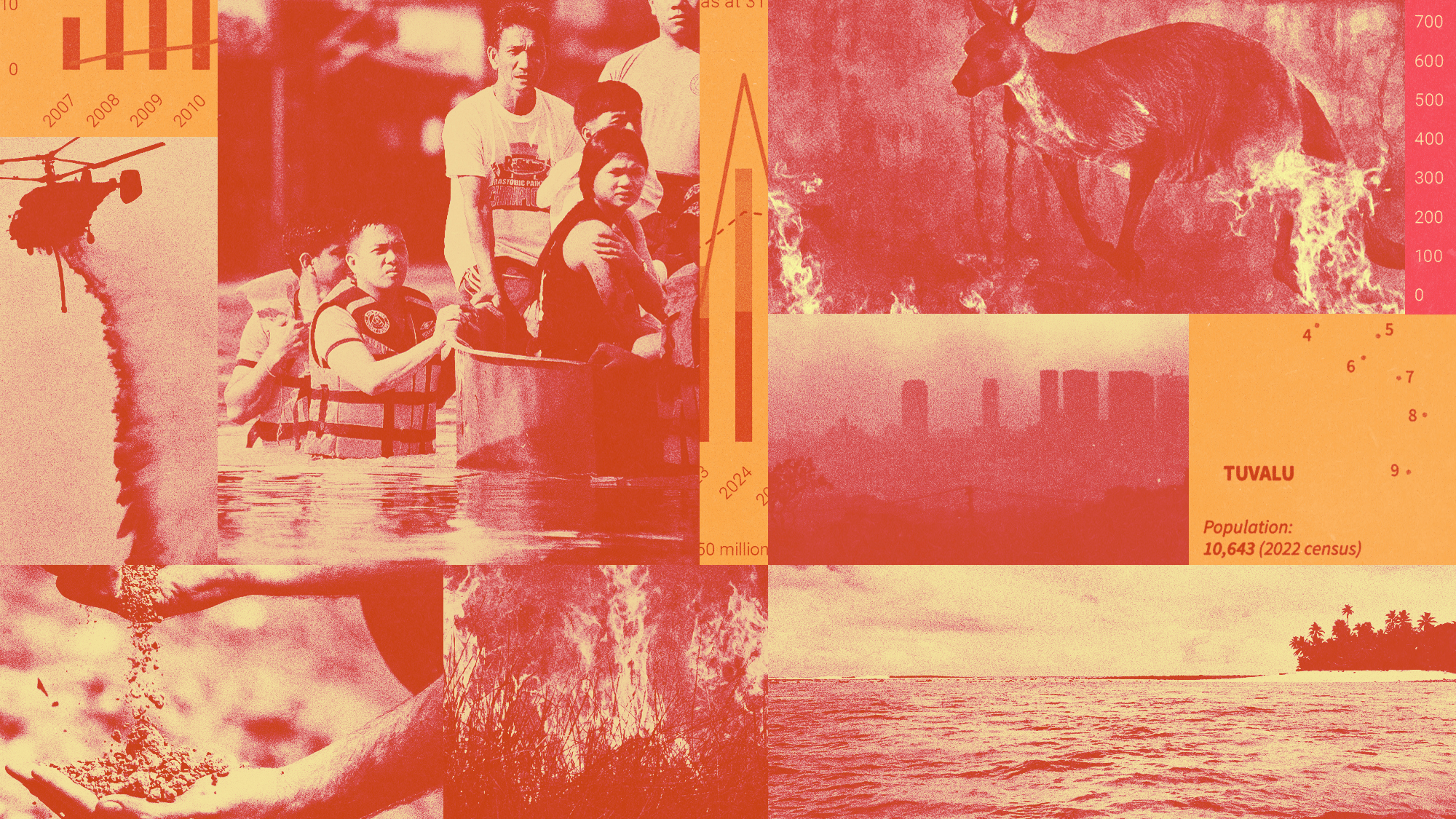 Can the world adapt to climate change?
Can the world adapt to climate change?Today's Big Question As the world gets hotter, COP30 leaders consider resilience efforts
-
 When does autumn begin?
When does autumn begin?The Explainer The UK is experiencing a 'false autumn', as climate change shifts seasonal weather patterns
-
 This Atlantic hurricane season is expected to be above average
This Atlantic hurricane season is expected to be above averageUnder the radar Prepare for strong storms in the coming months
-
 Why the weather keeps getting 'stuck'
Why the weather keeps getting 'stuck'In the Spotlight Record hot and dry spring caused by 'blocked' area of high pressure above the UK
-
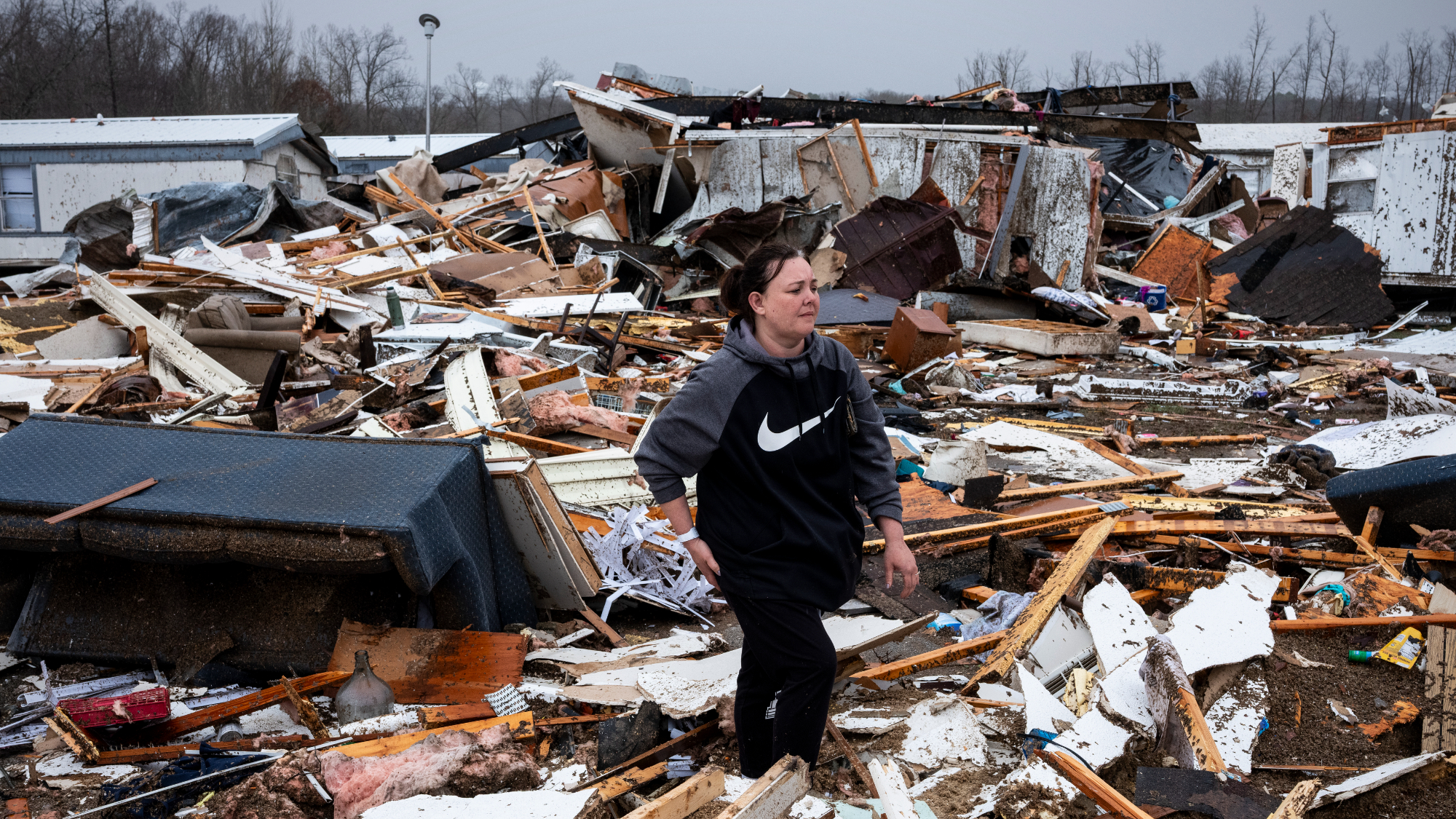 Severe storms kill dozens across central US
Severe storms kill dozens across central USSpeed Read At least 40 people were killed over the weekend by tornadoes, wildfires and dust storms
-
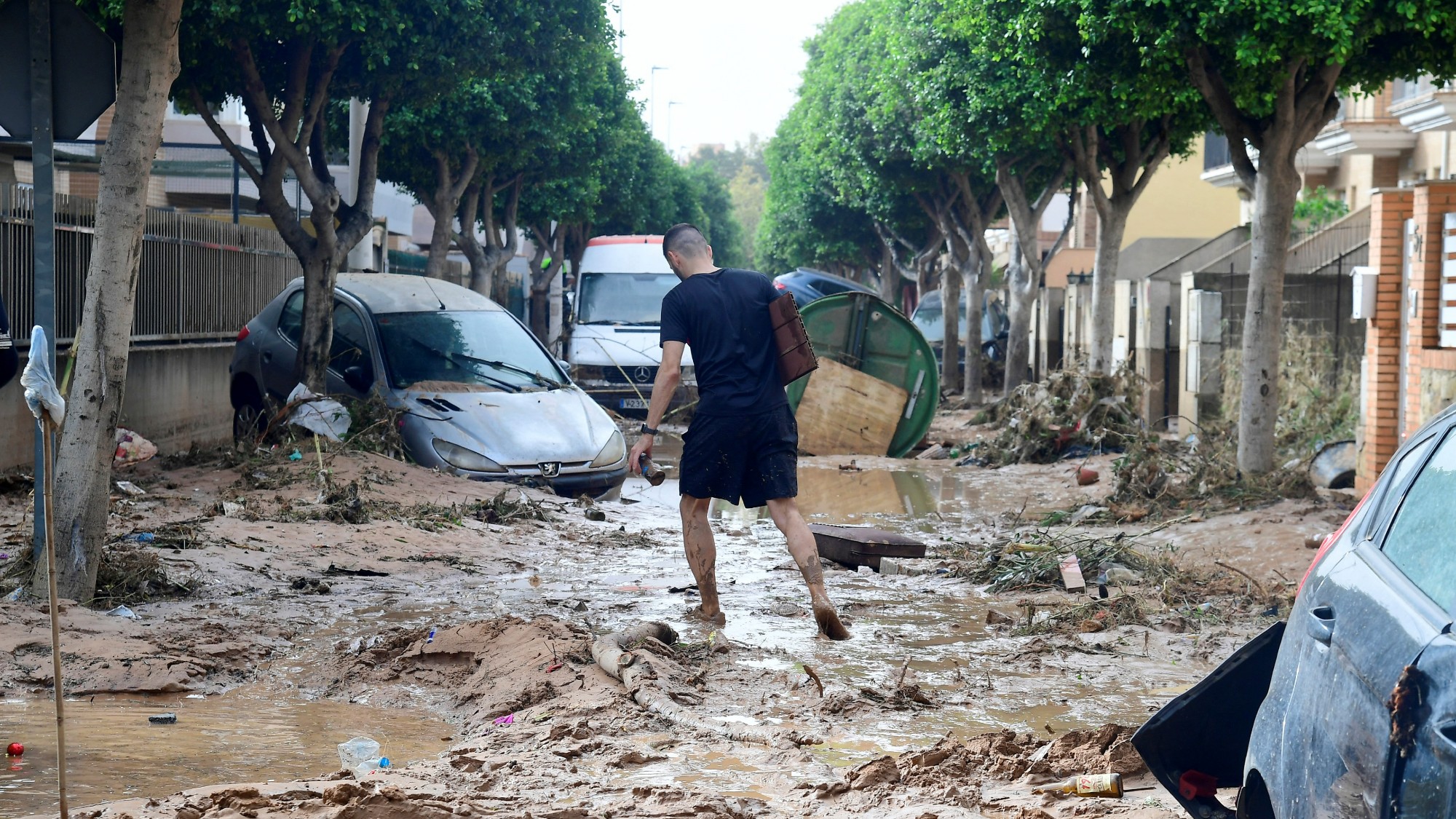 Earth's climate is in the era of 'global weirding'
Earth's climate is in the era of 'global weirding'The Explainer Weather is harder to predict and more extreme
-
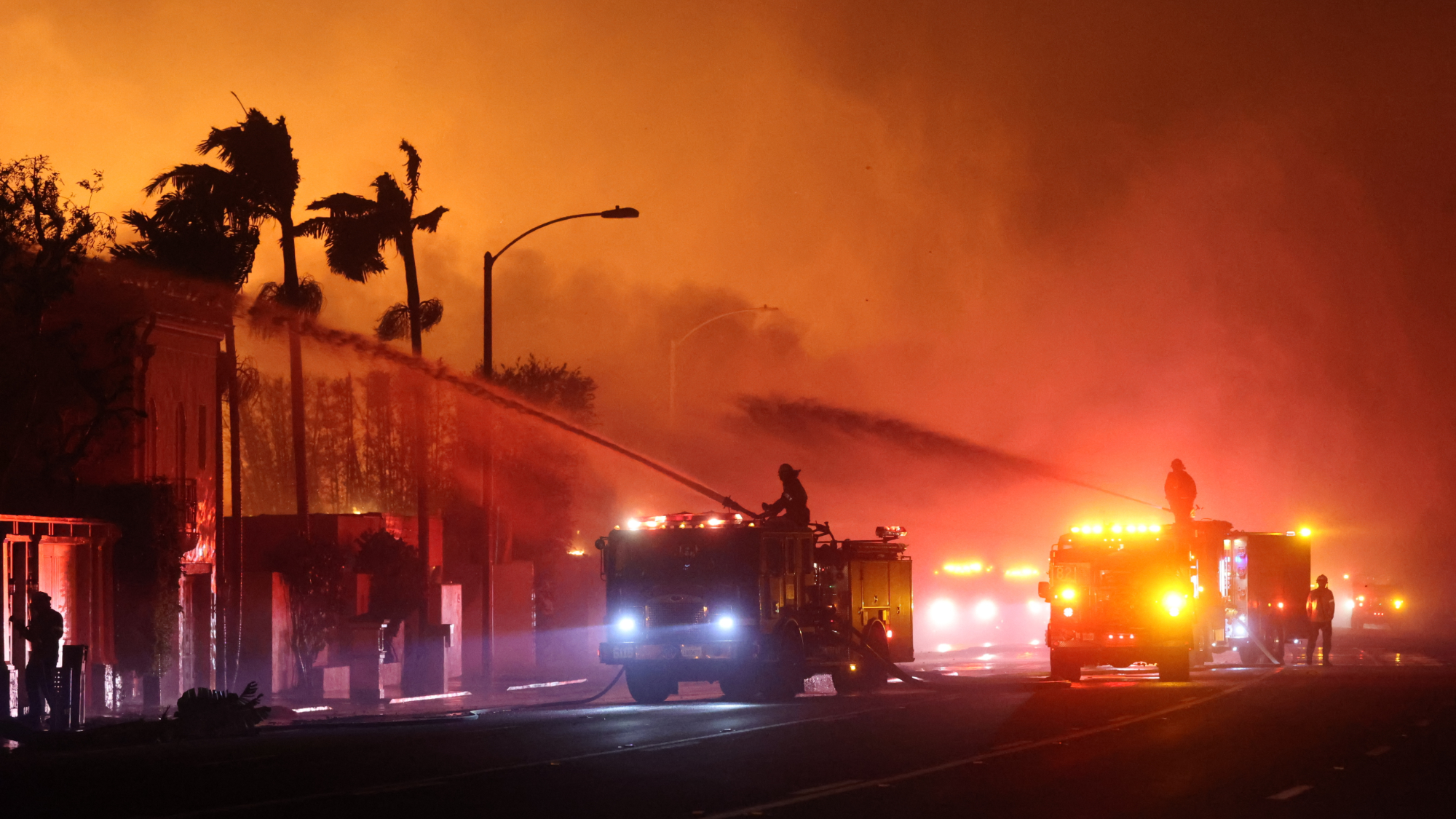 Biden cancels Italy trip as raging LA fires spread
Biden cancels Italy trip as raging LA fires spreadSpeed Read The majority of the fires remain 0% contained